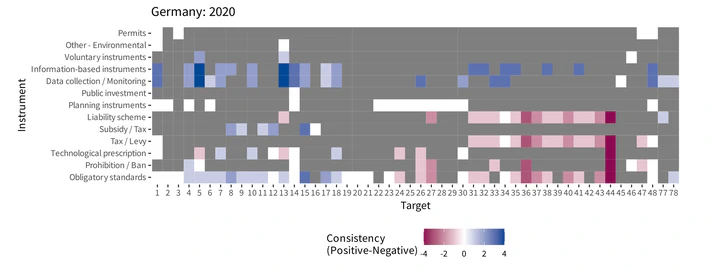Towards ‘better deregulation’: from crude cost-cutting to the targeted pruning of policy activities

Abstract
Deregulation is a prominent theme, but difficult to implement. Current approaches either focus only on ‘new’ rules without considering already existing policies, or fail to differentiate between effective policies and those that impose unnecessary regulatory burdens. This paper proposes a new, policy-informed approach to deregulation that addresses these issues by centering on existing policies and their interactions. The approach consists of three steps: (i) creating a systematic overview of government activities within a specific policy area, (ii) identifying stacked policies – multiple measures addressing the same issue, and (iii) pruning conflicting measures. By applying this approach to the environmental policy portfolios of 21 advanced democracies, we find an average deregulation potential of about 36 percent of existing measures per country. We additionally provide a specific list of policy measures for each country that merit scrutiny for potential deregulation and indicate whether these measures would have to be abolished at the national or at the EU level. This targeted approach seeks to enhance regulatory efficiency while preserving essential policies that support effective governance.
Online appendix
The online appendix contains an extension of the procedures and results presented in the paper.